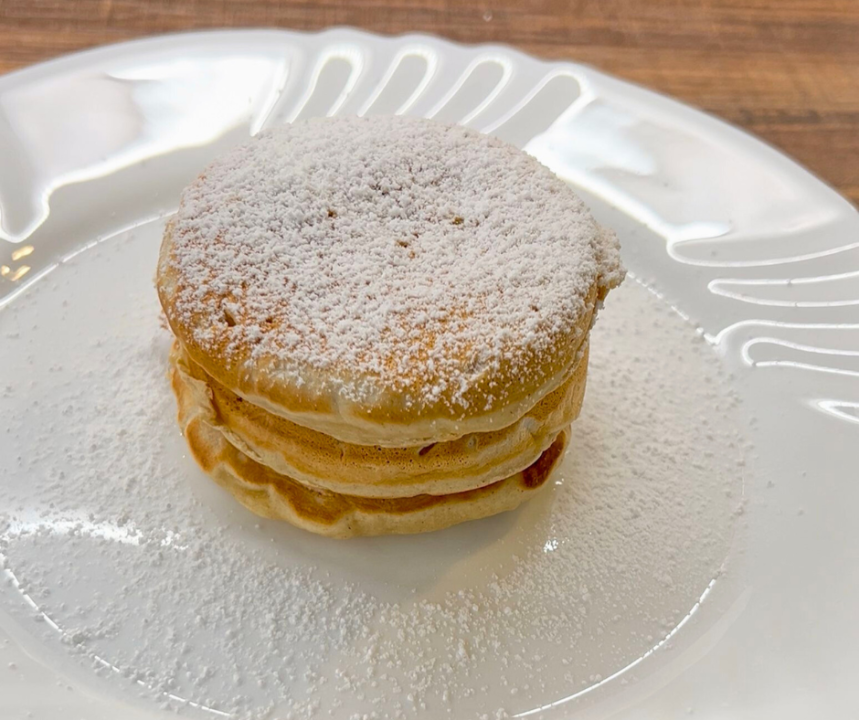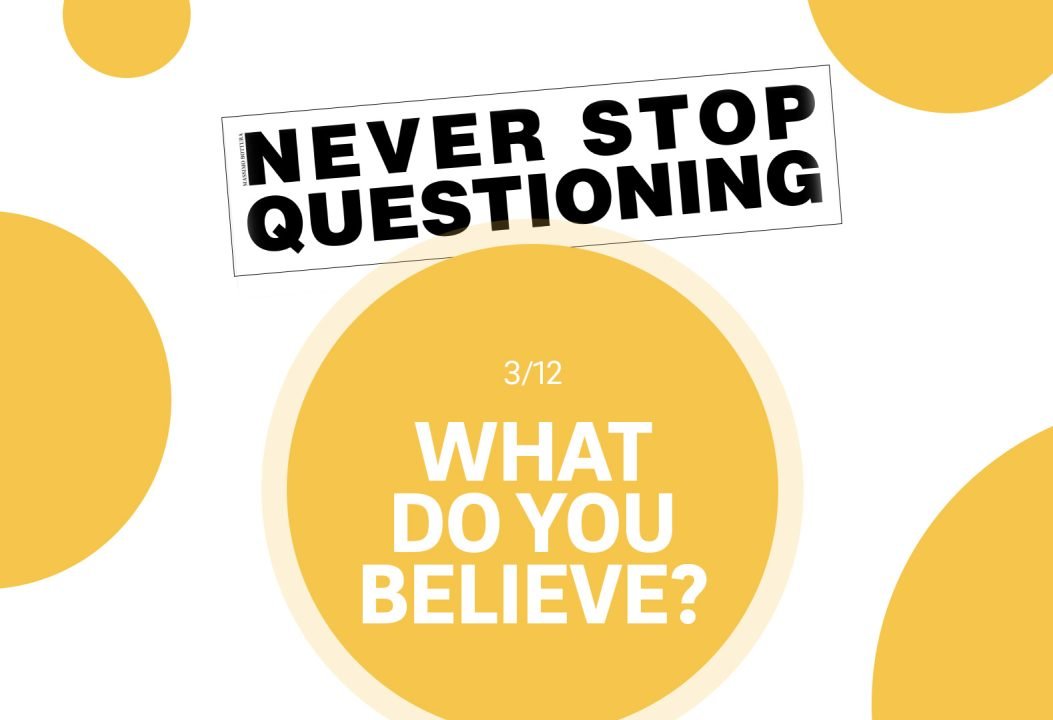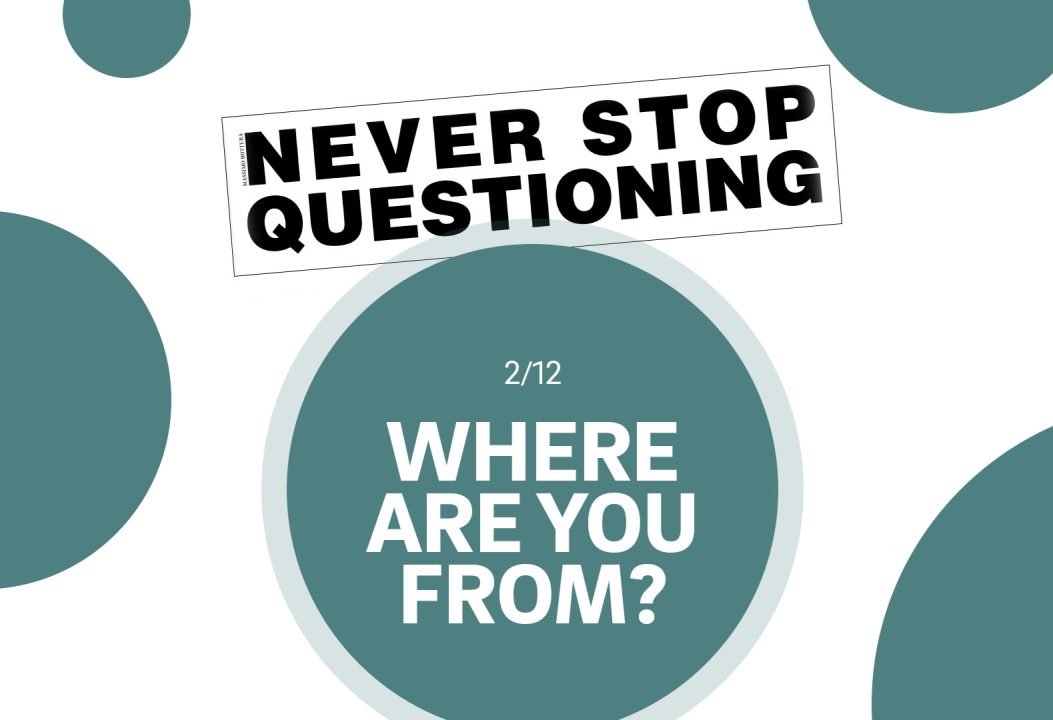Food for soul uses cookies strictly necessary for the proper functioning of the website, for its legitimate interest to enhance your online experience and to enable or facilitate communication by electronic means. To learn more about cookies please see our Cookie Policy
- About Us
- News and Stories
- News
- Searching for people’s potential

Credits: Refettorio Paris
Tell us a bit more about your experience at Refettorio Paris. What were your expectations before participating and how did you feel after?
I always try to hold back my expectations because it is the only way I can truly experience something. When I have expectations, the chances to get disappointed are high, so I’m trying to avoid that. But my experience at the Refettorio was…I don’t even know where to start!
I arrived on Monday morning, I walked to the Refettorio from Gare de l’Est, one of the main stations. The last time I was in Paris was maybe eight or nine years ago, so I had already seen the city but I hadn’t experienced it in the way I experienced it this time. Paris was warm, humid and noisy, but when I went inside La Madeleine everything was calm, and I experienced the complete opposite of what I was experiencing outside. I thought to myself: “Wow, this is a shelter, this is a place where people can go and find peace of mind.”
How did your first day go?
I met all the wonderful people who work there and we had a full day of work. The first night JR was there, and there were so many volunteers in the kitchen and it was just chaos, but it was a controlled chaos: everybody was dancing and having a good time. The volunteers serving at the tables had a good time with the people who came to eat, it was a very symbiotic relation of people discovering happiness.
I was quiet on the first night, but I really loved being there, spending time at the Refettorio, talking to everyone and experiencing the whole thing. I don’t think it’s possible to get a full picture of the project if you volunteer only once or twice, because every day is very different from the day before – you probably need more than a week to get the full picture.
How was working as a guest chef, when you are maybe used to leading the kitchen? What differences did you see between working in a “regular” kitchen and in the Refettorio?
When I think of Maxime’s position as a chef, I think that it could only be operated by him. He’s working with people who have no kitchen experience, so he needs to be really calm, explain everything, maybe even two or three times, while – at the same time – keeping everyone on schedule, because the service starts at 6.30pm and everything has to be done by then. You are a learning companion, more than a chef, you are there not to teach people but to guide. I think this is one of the main differences, and Maxime is doing a really good job.
In an interview with the New York Times, you said that one of the most important things for you is the quality of the ingredients. What did you think about the challenge of cooking with ingredients that are usually discarded?
As a chef, you are so used to getting whatever you need in order to get your job done, that you don’t realise that it should be the other way around. The job of the chef is to get on the plate what’s there and to make it tasty, and it’s nothing more than that. This is my general approach at least, but the real challenge for the Refettorio is that someday you may have cauliflower, and beef, and then you have chocolate and onions, and you have to think of a menu with those ingredients. You have to be really creative, and have a good taste memory. So when you combine meat, chocolate, onions and a cauliflower you know there’s a way to make it taste good. And the other important thing is that you are not cooking for people who are used to complex flavours, they are just happy over a good, decent meal. It’s important to find a balance.
Did you get the chance to be in contact with the guests?
There was a language barrier, as they often just spoke French. Someone translated here and there, but in a way that wasn’t too bad, because seeing their smiles, receiving a pat on the shoulder or hearing the excitement in someone’s voice, gave me way more than understanding all the words.
Can you tell us about a special memory (souvenir) you have with one of the volunteers?
I was surprised by the number of different stories I heard. For example, one night I worked with a pasta manufacturer from Italy who was on his way to Germany and he passed by the Refettorio to volunteer for a night: that’s crazy, that life guided you here, that we were there cooking together, that we are probably never going to meet each other again…it was beautiful! That’s the thing I enjoyed the most, being able to listen to all kinds of stories, every night.
What will you take with you from this experience?
Sometimes I lose hope in humanity and in the fate of our planet, and I know that the only thing left, is people’s potential.
In a project like this, everything is based on people’s potential, and that gives me hope and pushes me to go back to my work and try to make it better. Experiencing what people are capable of to make the world a better place, this is what I’m taking with me.
How do you think Refettorios could be a model to change the way people think about the food system?
What could be easily transmitted, is that food has a value. The Refettorio model gives a voice to the product itself, focusing on the fact that nothing, really nothing, should be wasted. This is personally one of the most important things I saw at the Refettorio. One morning, I went out with Maxime to get produce, and people were so happy to donate it, because they are tired of throwing it away. And it just makes so much sense, because no one wants to throw away food, but we’re trapped in a system that keeps doing it, so we need projects like the Refettorio to show us that a solution exists.


News and Stories
Your Gift Will Help Us Make A Difference Today
Would you help us create a socially inclusive world where no food is wasted, communities are food sufficient and have the tools to thrive?




